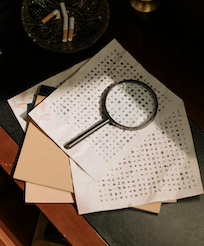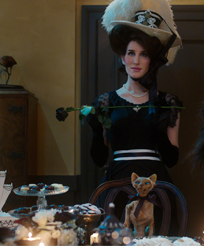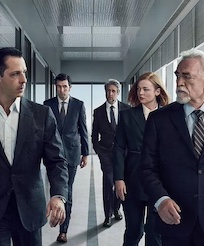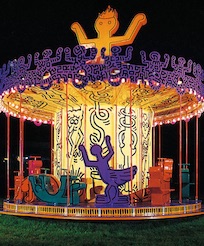As a large chunk of America ponders leaving Facebook behind for good, it helps to remember that, even before we knew shady British data analysts were targeting our deepest fears to alter the geopolitical landscape, Facebook has been simply awful for awhile now. Perhaps nowhere is this more apparent than with the Facebook notification. Once a beacon of excitement and possibility, the little red number has been reduced to a shell of its past functional glory.
Facebook, which began as a brilliant and intimate social tool, has turned into a business-driven algorithm blackhole of bullshit. We know this. We can’t share things on our feed without directing our friends to look at the "link in the comments” or it won’t show to most, if any, of our friends. Facebook seemingly only shows updates from super active people, who are shouting into the abyss about god knows what. The hierarchy is based on superficial language like “Congratulations!” or “Happy Birthday”—exclamations relegated to a severe lack of intimacy between actual human beings. In short, Facebook has lost touch, and in doing so, we’re losing touch with why we’re even there.
There was a time when receiving a Facebook notification was the digital equivalent of getting butterflies. Logging into Facebook and seeing that little red notification symbol awaiting our arrival meant something exciting had happened. No matter what else was going on, life was brewing under the surface of our own daily lives and we had an icon to prove it.
Notifications were designated for new wall posts from new friends. Two new friends chugging Natty Light Beers in a bathroom at a party, accompanied by a freshly created inside joke in the caption. A new wall post meant that friendship was flourishing, and publicly so. Notifications were reserved for Facebook messages from people we’d had faraway crushes on, asking if we’d be going to Friday’s party in the Everett dorms. Facebook notifications represented the hope for something new. A flashing, digital waving flag of possibility out in the real world. The potential for real-life moments, inspiring us to leave our insular worlds and go out into the world and receive it.
But that’s not what Facebook notifications mean anymore. Now, our Facebooks are littered with countless and utterly useless “notifications." “Alise and three others are attending an event near you tonight" or “Kevin updated his profile picture for the first time in a while” or the personal hell of a notification, “You and Damion are connected on Facebook messenger now”—a notification posturing as a message. A canned, automated message from a new “friend” suggesting we send sticker waves to one another is a bizarre and out of touch way for Facebook to suggest being social. Facebook notifications, which used to be evidence of our social worlds expanding, have become hollow and lacking in any semblance of true intimacy. It’s the drunk one night stands calling each other “baby” because they can’t remember each other’s names, and calling it love-making.
For this reason, and a slew of others related to the performative nature of Facebook in recent years, I’m basically only on Facebook so that people can reach me if need be. I don’t do much on there beyond be on there. Our generation has a uniquely angsty relationship with what’s left of Facebook. Unable to leave (it’s a way to be accessible, it’s a way to follow certain professional progresses, etc), but unable to stay and be happy like we once were. Unlike Instagram, which I use religiously, Facebook is more like that dress from college you don’t have the heart to get rid of for sentimental reasons. You can’t bare to part with it even though it serves virtually no purpose, and just needlessly takes up space.
Ultimately, Facebook can’t decide what it wants to be anymore and we can’t decide why we’re still hanging around. Like an old relationship that was once very good, we log in and get back together with our ex and are reminded that our ex has changed, no matter how much we wish he hadn’t. He’s no longer the wide-eyed 22 year old boy who thought you were the “prettiest girl he’d ever seen in real life." He’s the 30-year-old man, bloated from beer, who gave up on his dreams while searching for his own idea of himself between the legs of younger women. We keep going back, even though we know it no longer serves us. Facebook has been bad for a while, but it took us a while to really notice. We wander around searching for purpose in the arms of a tool that no longer knows its own purpose.
Facebook once had a degree of intimacy. The golden years, from about 2005 to 2009, were a beautiful little time in the blue world. I don’t know that other social media platforms like Instagram or Snapchat fill that void, although I’d argue they do a better job by virtue of having less going on within their interfaces. By stripping the functionality down, they cultivate a space where new friendships can blossom and seductive DMs can thrive. When I get a direct message notification in Instagram, I feel the echoes of that excitement I once felt from a Facebook notification. It’s not the same, but it's a reminder.
I don’t have high hopes for Vero, but I don’t think it will give us what we miss here. Facebook notifications might just need to live on in our memories the way they once were. Maybe they can’t be recreated, and maybe we shouldn’t want them to be. Maybe like that ex, it’s not something that will ever really go away—we just have to learn to move on without him knowing good and well what we really miss is the idea of someone and something. A ghost.
RIP Facebook Notifications. 2005-2010.













